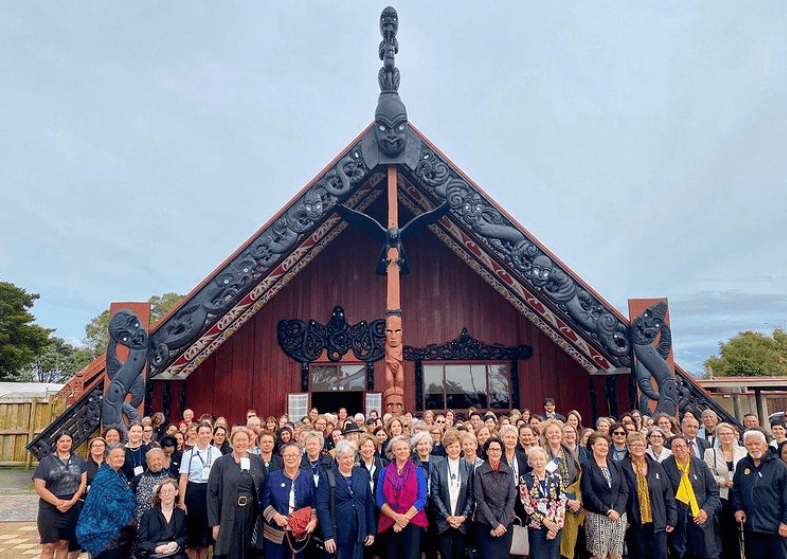Earlier this year, I was very lucky to be in the same room as some of my role models. When you’re a law student, you spend a lot of time poring over judgements and pulling out the reasoning, listening to your lecturer’s explanation. You’re encouraged to ask what interest the judge was giving most weight to? Would you have approached this in the same way or come to the same conclusion? So I was very surprised halfway through this year when I got the chance to talk to some of the people whose thought processes I’ve dissected and analysed, and who are making the structural changes in Aotearoa.
One of the greatest things to feel at uni is to feel humbled. There is so much wisdom and knowledge in the people we learn from and the people practising in each field. We learn by studying the resources and then talking about them. One of my lecturers once told us, “you’re going to be the ones presenting the judges with the arguments in the future.” That’s why it’s so important to look at all the cards on the table and how they’re being dealt. So any opportunity to speak to the experts themselves should be seized on.
The IAWJ is an international alliance between judges to address gender discrimination in the judiciary. It has a membership of over 6,000 in 100 countries, sharing strategies on how to overcome gender bias in applying domestic laws, and understanding how many of the issues overlap and what they can learn from each other. Chief Justices and Presidents of the Supreme Court of Nigeria, Australia, South Africa, Mexico, the UK, and many others, gather to discuss family violence, climate change, and applying international human rights instruments to protect women locally. Past conferences have been held in Washington, Buenos Aires, Rome, Arusha, and this year, it was held in Auckland. The theme was celebrating diversity.
Usually, only judges and IAWJ members can attend. But the University and a private benefactor issued scholarships for students to attend, as well. It was a great chance to hear the reality of the issues we tackle and see that at the end, we’re all just people doing our best to solve big structural problems.
The Conference itself started with crucial issues in Aotearoa, with a pōhiri at Bastion Point, with speakers and firsthand accounts from Ngāti Whātua on the Bastion Point/ Takaparawhau protests and the 1975 Māori Land March to Wellington. Other issues throughout the conference included gender equality, women and climate change, refugees, gender violence and indigenous rights, trans women in prison, protection of Indigenous people across Argentina and Canada, the #MeToo movement, sexual violence against children, and everyday life for a woman Afghan judge. All talks and conversations were by the women shaping and applying the laws, such as Zambia’s first female Chief Justice, Aotearoa’s Chief Justice, Helen Winkelmann, Susan Glazebrook from the New Zealand Supreme Court, Baroness Brenda Hale (former President of the Supreme Court of the United Kingdom), Zeid Raad Al Hussein, former UN Commissioner of Human Rights, Meaza Ashenafi, Ethiopia’s first female Chief Justice, and Hon. Phumzile Mlambo-Ngcuka, the Executive Director of UN Women. Helen Clark and Siouxsie Wiles spoke online, as well as women judges Zooming in live from Afghanistan.
It was also great to meet other students from other universities and hear about how they’re tackling their studies – many students are developing their fields of interest based on their values (criminal law) or where they think the law needs most guidance, in areas quickly developing (artificial intelligence). I loved the feeling of community between the judges, the practitioners, and the students, all around commitment to the same issues. You always hear things about competition in these areas, but to me it felt more like connection, passion, and hard work.
To think it all happened because I read the Law Students newsletter – I can’t recommend signing up to the Faculty newsletters enough and keeping an eye out for them. It’s so special to connect what you’re learning to the practice and contextualizing it into the present moment, and what’s needed now. Apply to these opportunities if you can – you never know if they’ll turn out.
If you’re interested in looking at more of the IAWJ’s work, you can find more info here:
https://www.iawj.org/

Scholarship winners – photo credits to the Ministry of Justice.
